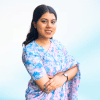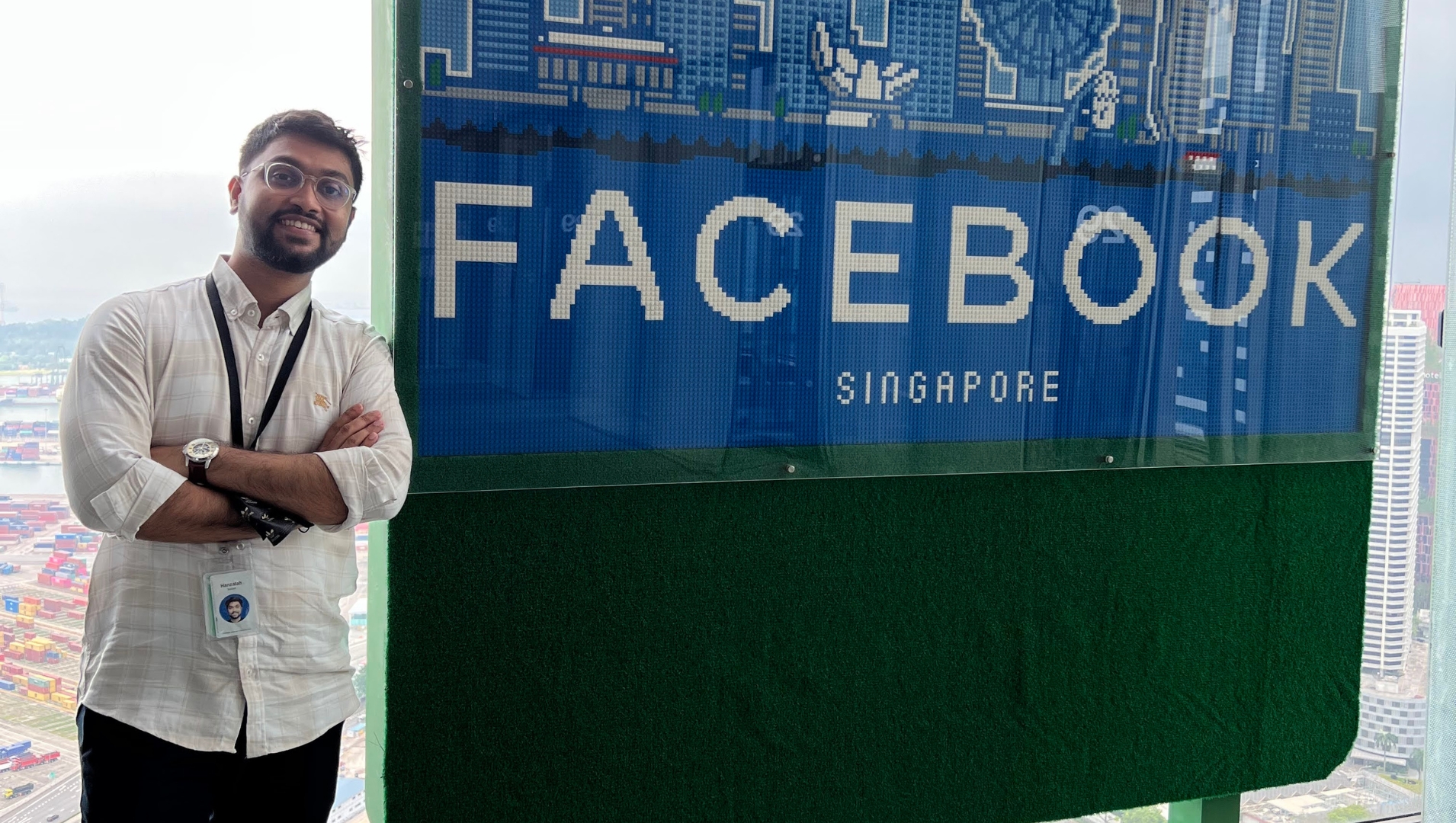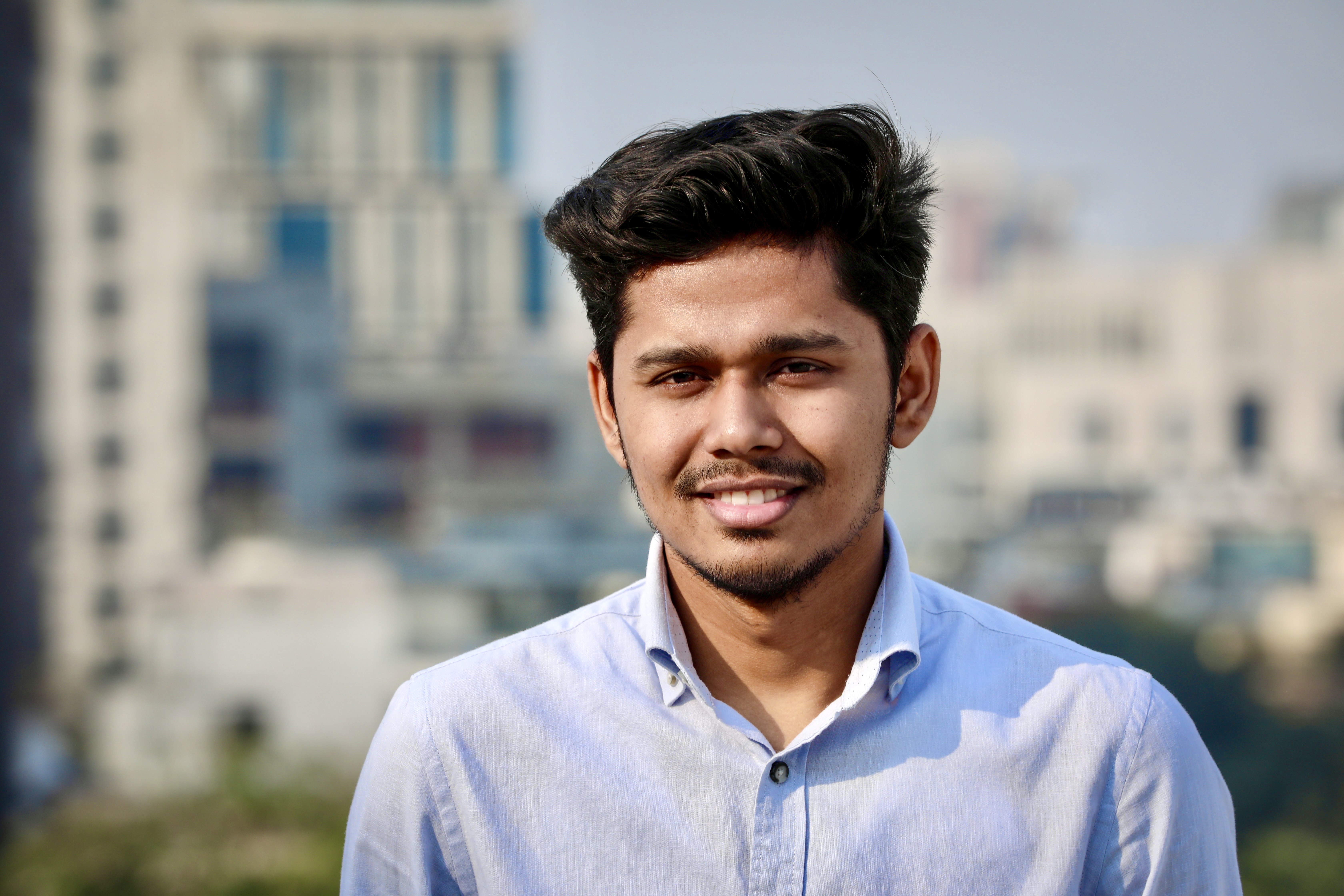A BUET graduate’s contributions to AI in healthcare at Saudi Arabia’s defence ministry

Asif Azad, a recent Computer Science and Engineering (CSE) graduate from Bangladesh University of Engineering and Technology (BUET), is currently working remotely as an AI engineer (health services) for the Kingdom of Saudi Arabia's (KSA) Ministry of Defence (MoD).
Asif's academic journey began in Madaripur, where he completed his primary education, followed by his secondary education at Faridpur Zilla School, and then Jhenaidah Cadet College for higher secondary studies. At BUET, Asif focused on excelling academically while nurturing a strong interest in artificial intelligence (AI) and machine learning (ML). Today, he contributes to AI-driven healthcare solutions for autism and post-traumatic stress disorder (PTSD), working closely with medical professionals and centres to enhance patient care through modern AI technologies.
Campus sat down with Asif to learn more about his work, research, and his thoughts on AI and its future.
Campus (C):Could you tell us how you found yourself working with AI at an international level, and that too for the MoD of another country?
Asif (A): I had been fascinated by AI and ML since my third year, and by the fourth, I was lucky to have an incredible mentor, Dr Mohammad Saifur Rahman, a former Microsoft software engineer, as my thesis advisor. Most students had little hands-on experience with ML, but my practical skills stood out, and he also noticed my technical ability when I helped fix an issue on one of his machines.
About three months before graduation, Saifur sir showed me an internal job-opening document from his friend, Dr Ehsan Hoque, a Bangladeshi-origin professor of Computer Science at the University of Rochester and a leading researcher in health AI. His work focuses on using AI to model human behaviour and support individuals with autism, neurodegenerative diseases, etc. He was building an AI innovation team for health services under the MoD in Saudi Arabia, and Dr Saifur referred me to him. I had a 30-minute interview, thought it went terribly, and didn't follow up, assuming I wouldn't get the role. Dr Hoque mentioned I still had a few months before graduation, but they needed someone immediately, so hiring locals seemed more practical for them. For the first time in my university life, I felt a little regretful, wishing I could have graduated sooner.
Back on campus, I had started applying to other relevant job openings at local tech companies and university CSE departments, receiving multiple offers. Just as I was preparing to join one of them, I unexpectedly received an email from Dr Hoque confirming my selection for his AI innovation team at KSA's MoD. Later, two of my friends joined the team too. That's why I always tell my juniors that the right referral at the right time can open doors you never expected.
C: Where did your passion for AI originate from, and was there any university experience that shaped your path?
A: I have always wanted to work with cutting-edge technologies, not just AI. But as AI started booming, I realised that I might miss out if I didn't follow these trends. Out of curiosity, I began exploring these technologies and their architectures online. Every year, universities like BUET and Dhaka University (DU) host many datathons in Kaggle, mostly focused on deep learning and AI. So, in my third year, a friend and I decided to give it a shot.
Datathons usually span 20–30 days, offering more opportunity to learn compared to hackathons that typically last just a single day. We especially enjoyed exploring research papers and the codebases of state-of-the-art AI and deep learning models, modifying them, and fine-tuning on our dataset for the competition. Eventually, our breakthrough came at the Deep Learning Sprint 2.0 in 2023, which was part of the BUET CSE Fest, hosted in partnership with Bengali.AI. There, our team, Black Quad, became the champions. We topped both public and private leaderboards in that Kaggle competition on document layout analysis, training the MViTv2 transformer model with a cascaded Mask R-CNN on the BaDLAD dataset to extract text boxes, paragraphs, images, and tables from Bangla documents. After that, I got hooked and started participating in every datathon I could find, learning more with each competition.
C: Why would the KSA recruit AI health engineers for the MoD instead of its Ministry of Health?
A: Honestly, I was also surprised at first. But once I started working on a few projects, it made sense. Saudi Arabia has a large population and vast resources, and the Kingdom wants to push AI across sectors, not just limit it to healthcare. Think of it as using defence infrastructure to scale healthcare AI faster. With their focus on becoming a tech-driven country, this approach allows them to generalise AI solutions and impact a broader population efficiently.
C: Can you walk us through your current role and its impact on healthcare?
A: I work on the application side of AI to improve healthcare services, particularly for autism and PTSD. We constantly try to make life easier for those who are living with these conditions.
Take autism as an example. Many children struggle with speech and acute communication problems. They attend therapy sessions at medical centres, but there aren't enough therapists there, leaving children underserved and families exhausted. Again, PTSD patients often relive trauma in vivid flashbacks, nightmares, or overwhelming anxiety. Even when help is available, distance, stigma, or long waiting times can limit consistent therapy.
Our work develops AI tools to support therapists, bridge communication gaps, and provide remote patient assistance so that care can reach people rather than the other way around. Many existing apps were built before the generative AI revolution sparked by the launch of ChatGPT in late 2022, and, therefore, those apps are missing out on the advancements available today. By leveraging advanced large language models (LLMs), vision language models (VLMs) and multimodal foundation models, we transform those tools to provide deeper, more personalised, and human-centred support.
C: What are some of the challenges and advantages of working remotely with an international defence ministry?
A: The toughest part is definitely the lack of face-to-face interaction. I am naturally an outdoor person, so sometimes I miss the energy of in-person brainstorming sessions where ideas bounce around more spontaneously. On the flip side, remote work also comes with big advantages. It gives us flexibility and the ability to manage our time well while still keeping projects moving forward. Our team is quite close-knit - we meet two to three times a week online, which feels a bit like being part of a fast-paced startup while still doing research at the frontier of AI. Our professor leads the discussions, and I regularly connect with therapists, medical centre directors, and researchers to understand real-world needs. That feedback loop makes our work feel meaningful because we are designing AI tools that can actually be used in clinics.
Besides, on the infrastructure side, training and running AI models need powerful GPUs, which we access through cloud platforms like Alibaba and Azure that have dedicated data centres in Saudi Arabia. This ensures each team member has secure, high-performance resources. At the same time, we follow strict privacy rules and ethical protocols – like clinical trial approvals and consent requirements – so that the technology remains trustworthy and safe to deploy.
C: Which AI tools, technologies, and problem-solving approaches are most crucial in your work?
A: Initially, we rely on existing AI tools to test ideas quickly rather than jumping straight into building models from scratch. In healthcare, the real challenge isn't the algorithms; it's the data. Medical data is sensitive, scarce, and heavily protected by privacy laws. That's why one part of our team focuses on collecting and anonymising data from multiple medical centres. Once we have enough high-quality data, we will start training our own models. This approach helps us move fast, stay compliant with privacy standards, and aim for real breakthroughs in AI-driven healthcare.
C: What skills, extracurricular activities, research, or competitions can help Bangladeshi students stand out for a global AI career?
A: From my own experience exploring AI engineer roles, I found that most positions in big tech companies require advanced degrees, such as a master's or PhD in fields like AI, ML, computer vision, or LLMs. For undergrads, this means two things: first, maintain a strong CGPA, which is essential for getting into top research labs, and second, get involved in research and aim to contribute to publications in top-tier AI conferences. Focusing on these will increase your chances of landing in a top-tier, renowned AI research lab, which will eventually help you secure an AI engineer role in leading tech companies.
Beyond maintaining strong academics and engaging in research, there are several ways to stay actively involved and deepen your expertise in AI during your undergrad. First, develop a clear understanding of AI fundamentals. For example, understand how transformer architectures – which power most generative AI models today – work. Plenty of free online resources, such as blogs, tutorials, and courses, are now readily available and can help you build this technical foundation easily.
Next, gain practical experience. Competitions like datathons allow students to apply their knowledge to real-world problems and refine model-building skills. Locally, various datathons are organised each year by CSE departments of leading universities like BUET, DU, Islamic University of Technology (IUT), Shahjalal University of Science and Technology (SUST), etc., providing hands-on exposure. Meanwhile, globally, numerous AI competitions on platforms like Kaggle expose students to international standards, allowing them to compete against a larger talent pool and develop problem-solving speed and adaptability under pressure.
Moreover, it is important to stay adaptable as tools and technologies evolve rapidly. Remember that tools change very fast. If you try to master every single library or framework at once, you will get overwhelmed. Instead, learn to understand each tool's purpose, its advantages, and when to use it so you can revisit it efficiently when needed. A high-level overview matters more than memorising every detail. At the same time, stay updated on state-of-the-art technologies. Conversational AI bots like ChatGPT and Gemini can help you learn tools faster, but ultimately, it's your responsibility to keep up with breakthroughs in areas like reasoning models, computer vision, or multimodal AI.
Finally, building a personal brand is very valuable for undergrads. Share your projects, datathon wins, or other relevant achievements on platforms like LinkedIn or other professional channels where AI experts are active. This not only showcases your work but also signals to potential collaborators or recruiters that you are actively contributing to the AI community.
C: How important is domain-specific knowledge compared to technical skills in specialised AI sectors?
A: Domain knowledge can be useful, but technical skills matter more at the start. I work closely with healthcare professionals and learn from their insights while focusing on AI. If your technical foundations are strong, it becomes much easier to pick up the necessary domain details.
C: How do you address ethical considerations in healthcare and defence AI?
A: Ethics are non-negotiable. Before any tool is deployed or tested, we follow strict approval processes. Each country has an Institutional Review Board (IRB) or equivalent authority to review human experimental studies and clinical trials, and no project moves forward without clearance. For projects involving patients or children, we obtain informed consent from parents or guardians. Thus, these steps are essential to ensure safety, privacy, and trust.
C: What emerging AI trends should students prepare for in the next five years?
A: The AI field is evolving so rapidly that it's hard to predict what will happen in the next few months or even the next year. However, if I were to bet on impact, I think there will be massive changes in healthcare and robotics. Reasoning capabilities in LLMs have already transformed tasks like mathematics and coding. Now, I am seeing the rise of reasoning models for medical applications. They can listen to patient symptoms, consider possible causes, and suggest next steps. In the future, I expect many AI-driven medical-reasoning applications to help triage routine cases, leaving critical cases for human doctors. For countries like Bangladesh, this could make basic healthcare accessible at home while allowing medical professionals to focus on urgent cases.
And now, regarding robotics, I see AI as the 'brain' and robotics as the 'body'. When combined, AI models could perceive, act, and interact in the physical world. Imagine a ChatGPT with hands, legs, eyes, and a sense of touch, able to take meaningful actions (like making you a cup of coffee) beyond just generating text or images.
C: Any advice for aspiring AI engineers?
A: Coming from a developing country, I understand the pressure of high expectations from family, friends, and society, often with limited resources. It can be hard to feel exceptional, but the key is to invest in yourself and consistently work on improving. Focus on reaching a level where you can make meaningful contributions to your community and country, and when you get there, give back.
Life will always have problems, but if you approach them with a smile and a positive mindset, you will realise life is not that bad. Life is beautiful.
Fatima Ashraf is a contributor for Campus, The Daily Star.




 For all latest news, follow The Daily Star's Google News channel.
For all latest news, follow The Daily Star's Google News channel. 


Comments